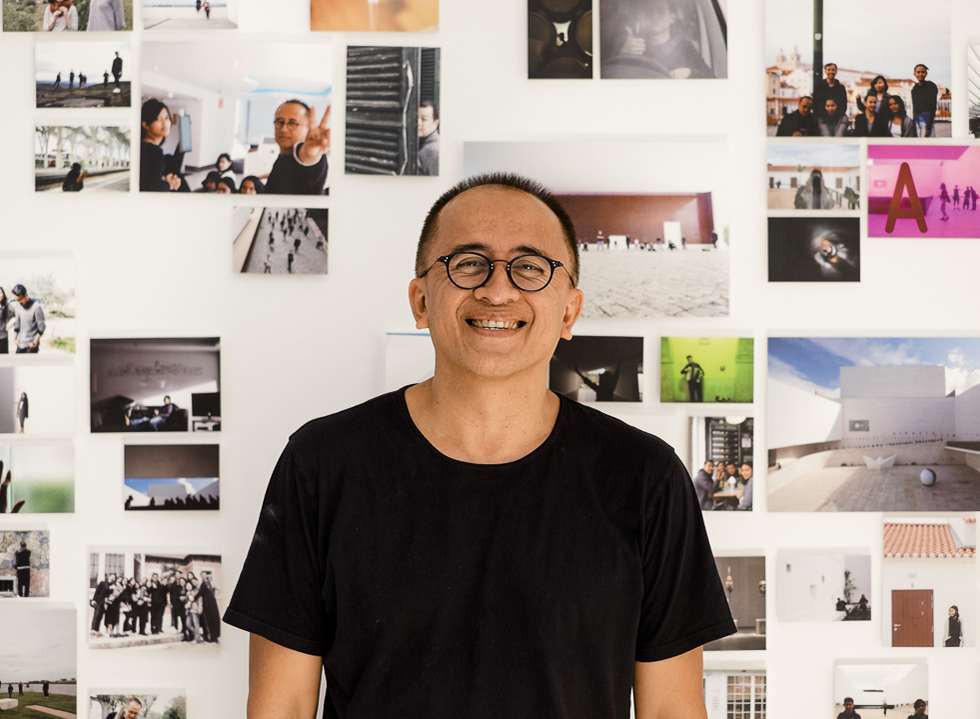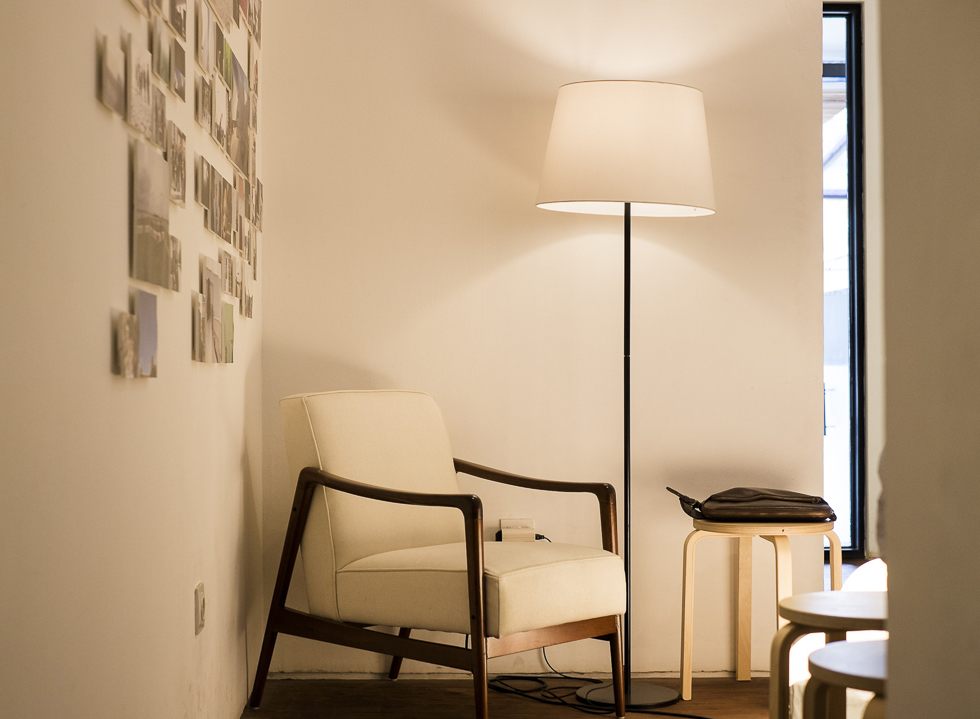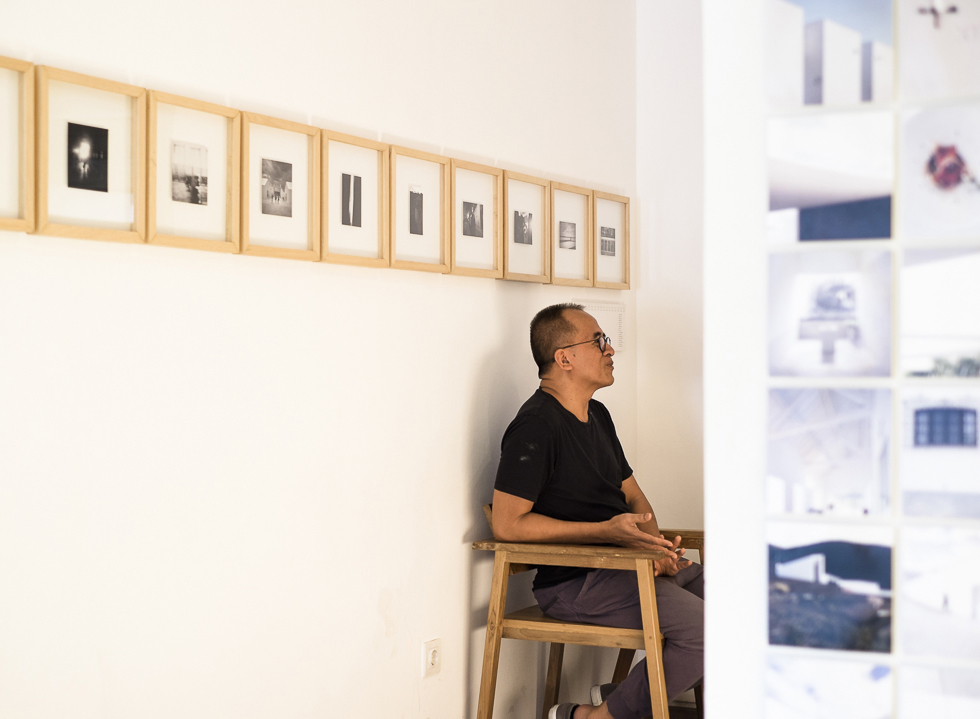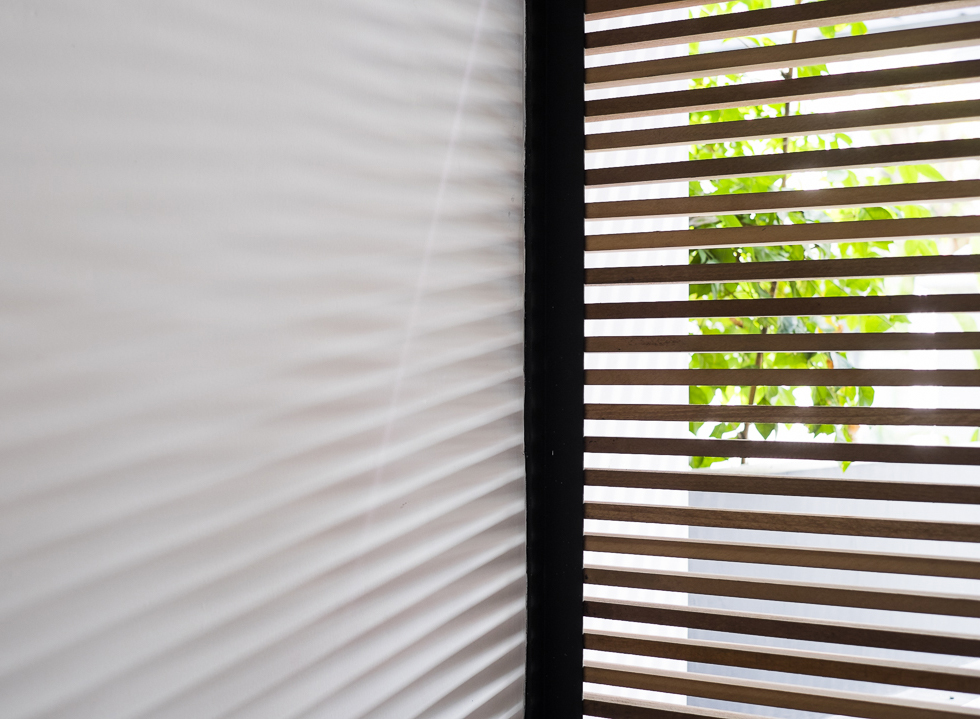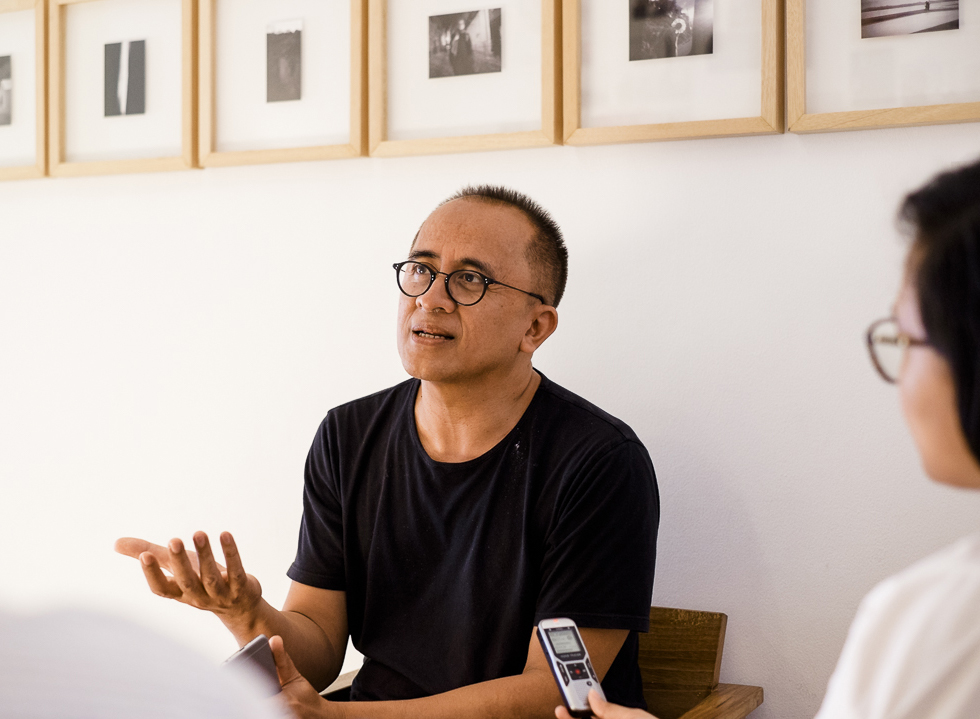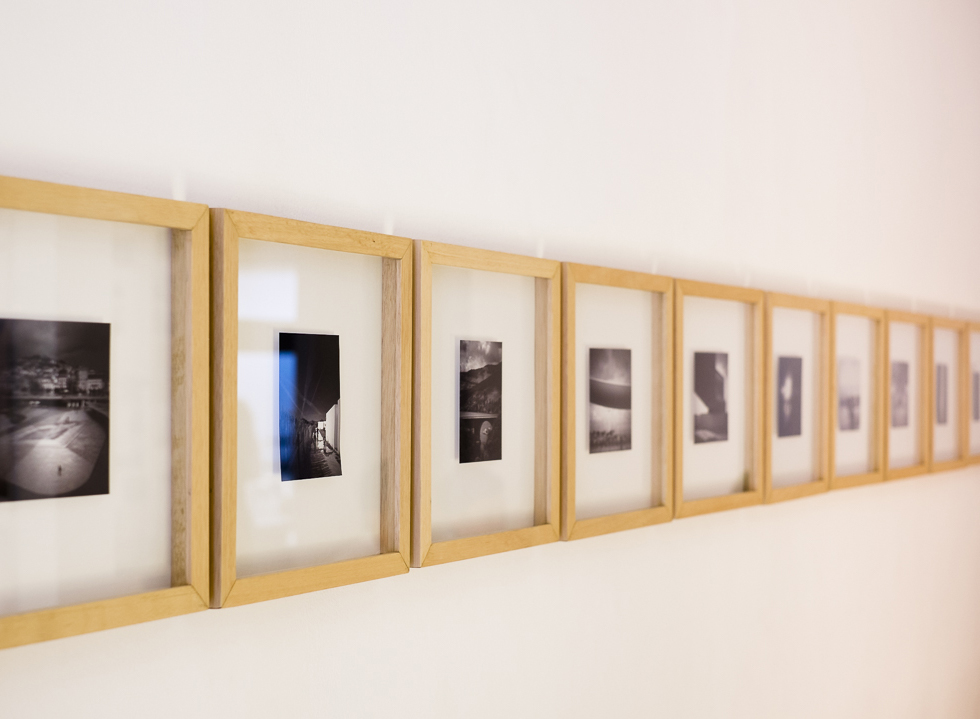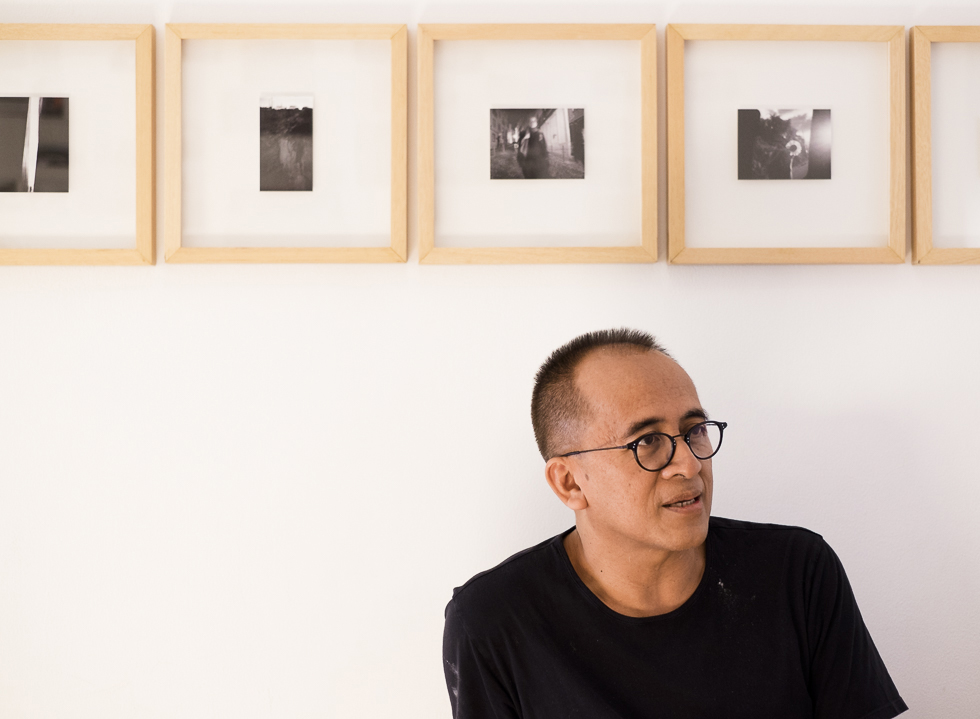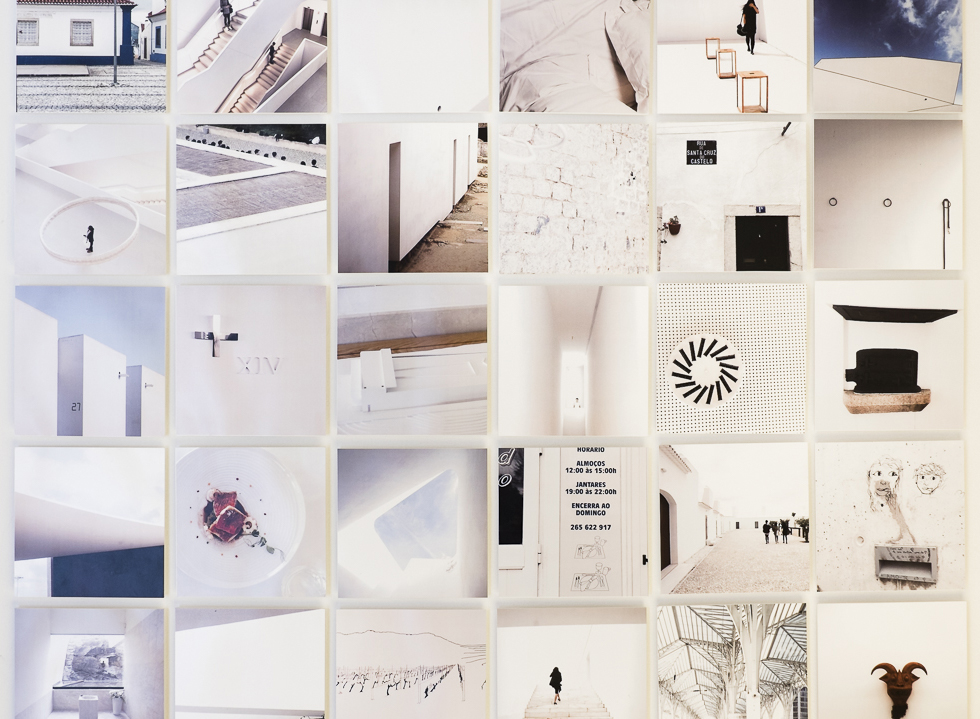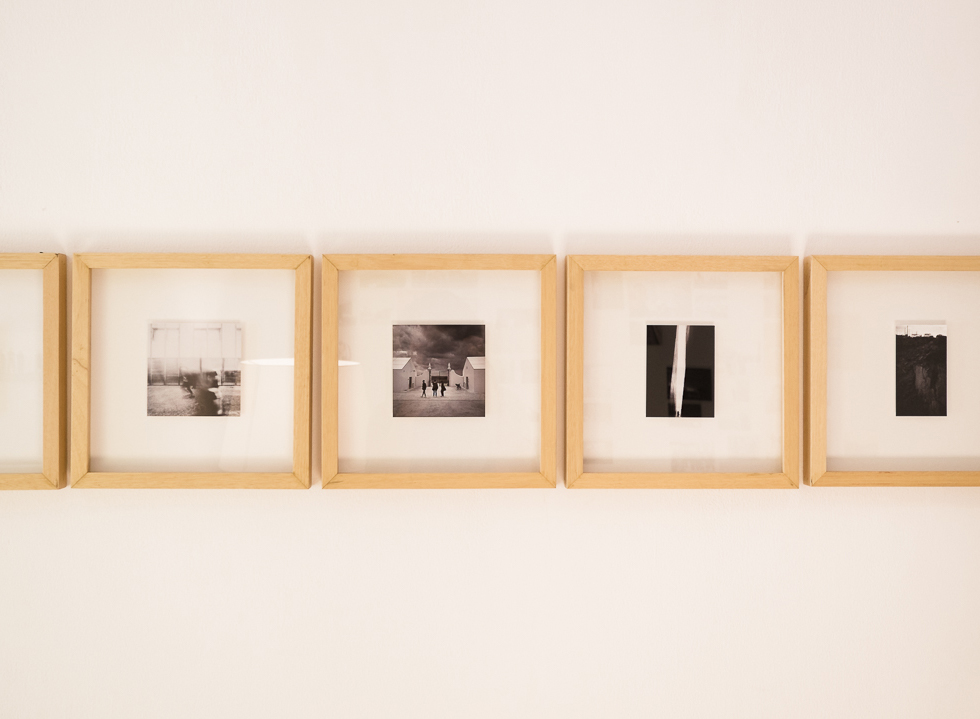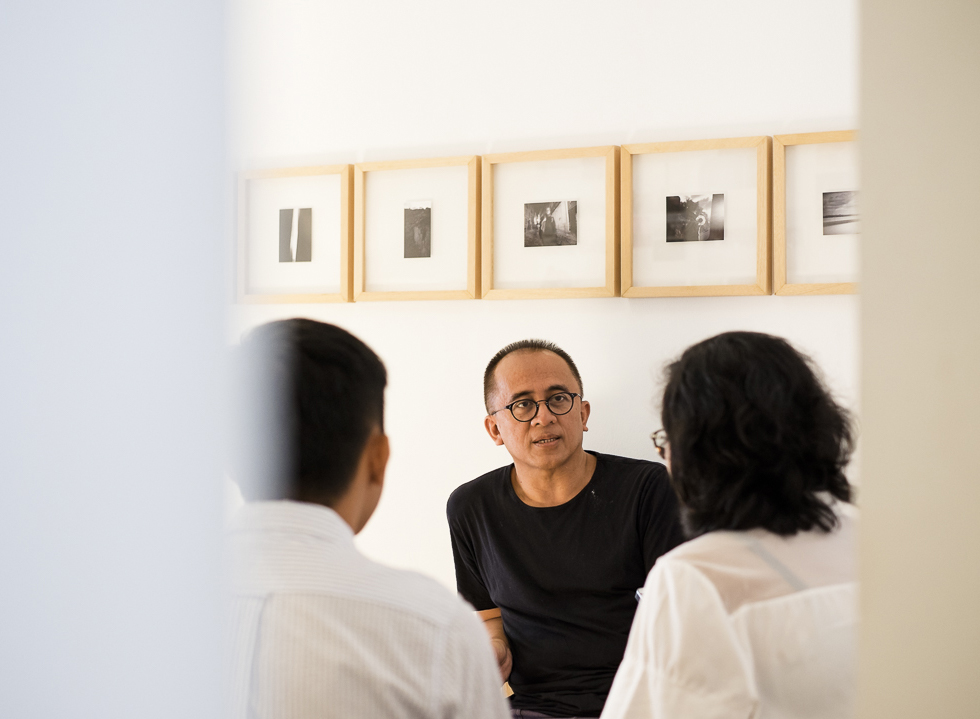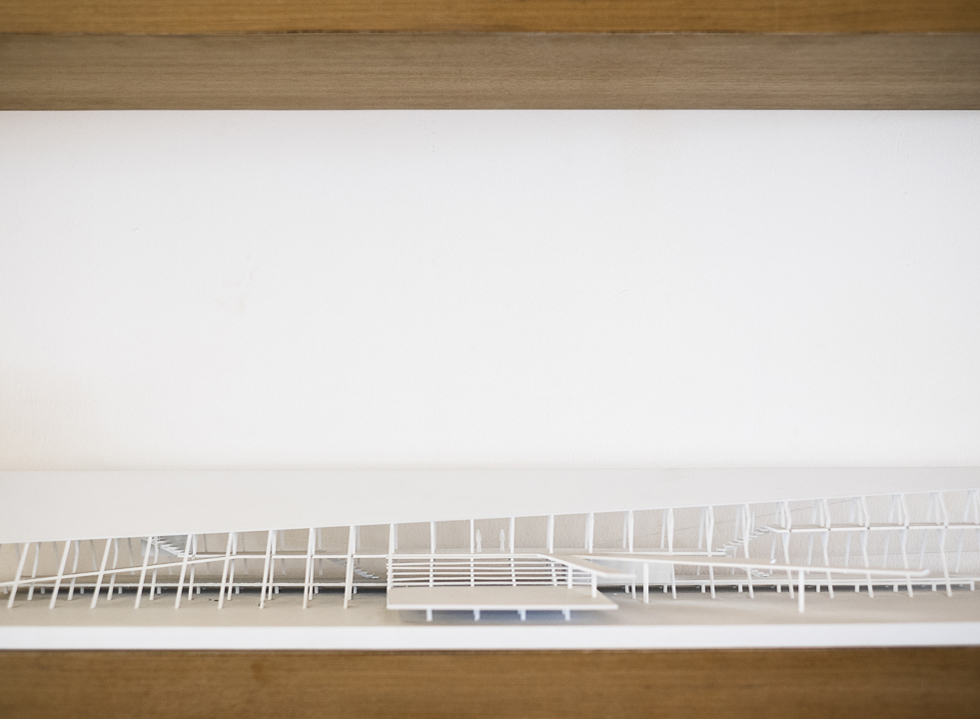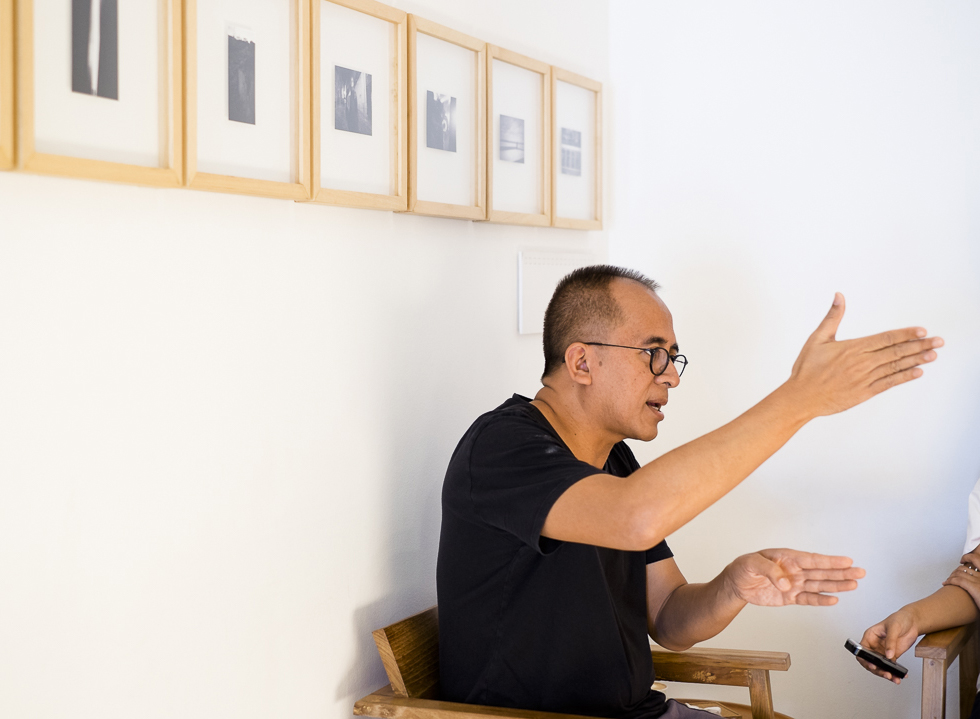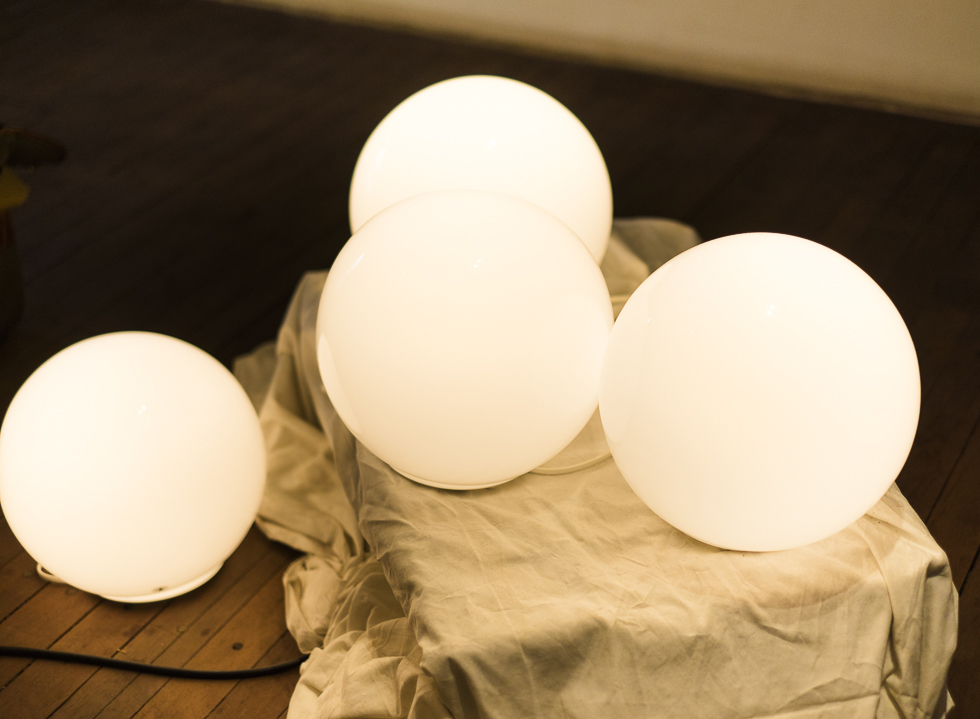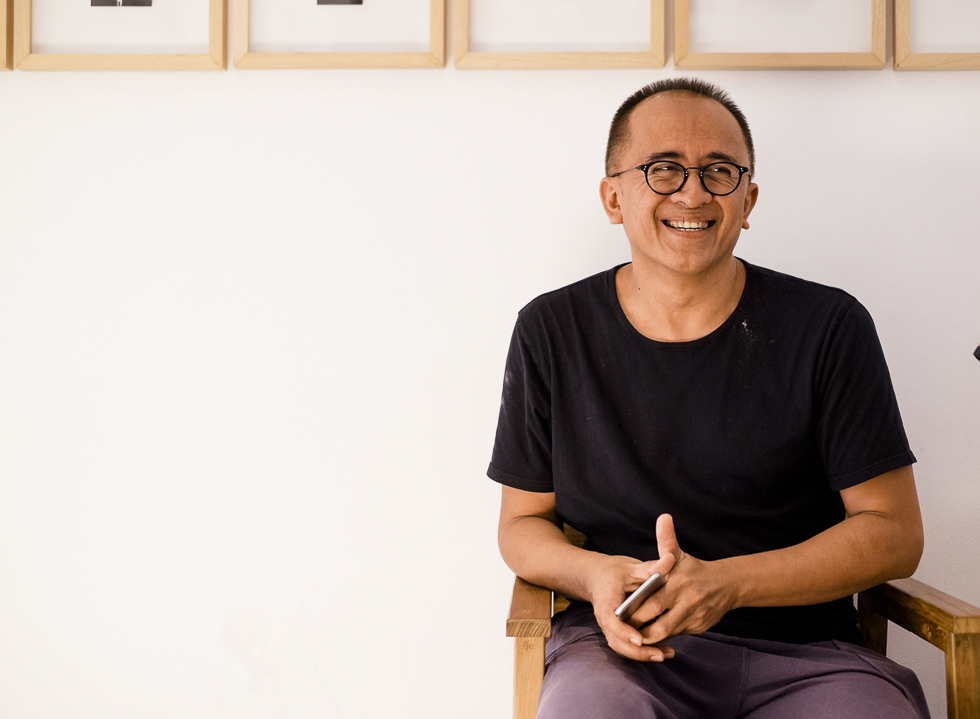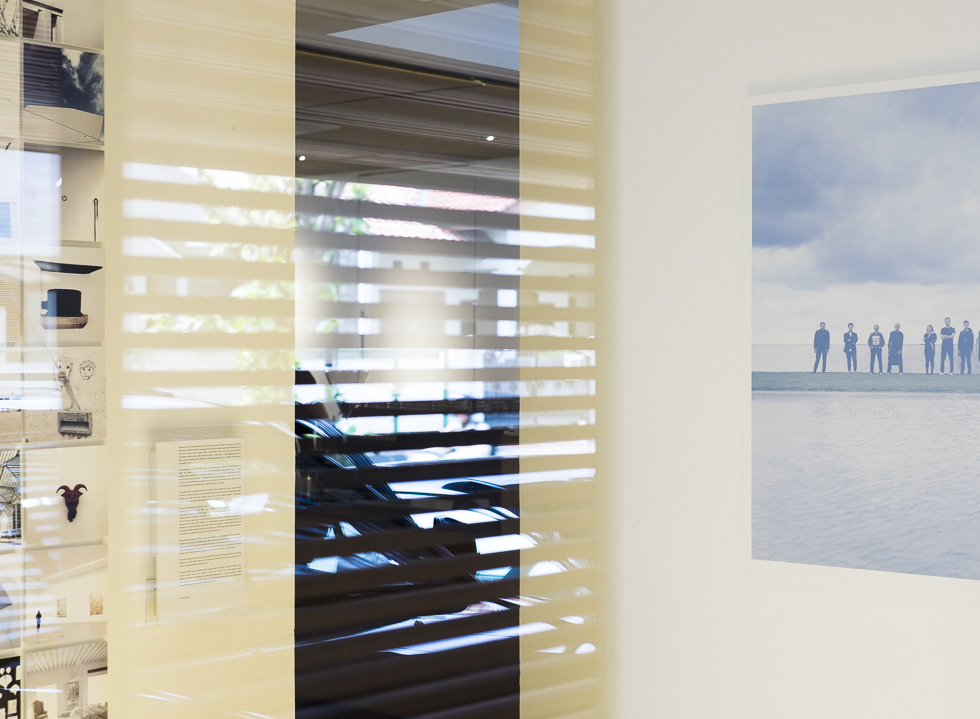Andra Matin may just be the most sought-after architect in Jakarta with various projects spanning from the large-scale constructions, such as the handsome 19-storey AD Premier building, Banyuwangi airport, including the upcoming Katamama boutique hotel in Seminyak, Bali, to the most personal ones such as his private residence.
We decided to meet at Kopi Manyar, a café he owns with fellow architect friends. It’s not lunchtime yet but the café is already buzzing with conversations and loud noises hissing from the espresso machine. Andra Matin arrives in a leisurely gait, dressed in equally leisure getup – a simple black tee and dark grey sweatpants. After placing an order for his latte, we settle down nicely to a quiet corner.
“Let’s not be too formal. Just call me Mas Aang,” he says. His latte arrives. He tears up a sugar packet, pours in almost all content into his cuppa and stirs it. I break the ice by asking if the love of coffee runs in the family.
“No. It’s my wife, mostly. She loves coffee, the third-wave kind. But me, I just can’t seem to like those kinds of coffee sans sugar,” he confides, humbly, with a subtle Sundanese accent, followed by a smile.
“Kopi Manyar used to be an abandoned house. It’s such a shame to have this potential structure go to waste, why don’t we build a café instead?” says the architect. “I enjoy solving problems through design. It is easier to design with the purpose of solving a problem, a context,” he says.
“Sometimes our approach is too Western-oriented.”
“Let’s talk about your house,” I say to him. A few months ago, we ran a piece on Andra’s residence, which features a handful of unorthodox takes on private residence.
“Indonesians have this standardised image of a house,” he answers. “Our residential designs rarely refer back to traditional Indonesian houses, which were originally created to adjust to our country’s tropical climate.” He continues, “Those living in temperate regions with four seasons a year are actually quite envious of our tropical country.”
He explains how some traditional structures that are being taken for granted today are actually invaluable legacies from our predecessors in coping with the elements from Mother Nature. “We don’t have extreme climate such as winter, that’s why people on the past era came up with pendopo (a type of gazebo that is open on all sides, allowing breeze to flow through) and large terrace that complements one’s home, where we can lounge around on any time of the year. And I adapt that concept into my home, therefore the indoor becomes the outdoor and vice versa,” he says.
“When we live side by side happily with nature, we would live comfortably,” he claims. “Sometimes our approach is too Western-oriented and therefore ended up wasting too much of our country’s treasured resources. If we don’t start saving up our natural reserve, how will the next generation live?”
“I found myself more suited to architecture compared to art.”
Andra established his architecture studio, andramatin Studio, in 1998, a time where Indonesia was thrown into a period of turmoil. I ask if that must have been quite a tough time for him personally.
“No,” he answers immediately. “The condition was actually quite positive for me. Maybe that’s partly because I was quite an optimistic person.”
Born to Sundanese parents in Bandung, Andra discovers his interests in design during his childhood years of watching his father, an art graduate from Bandung Institute of Technology, drawing logo for a scout community and designing school uniform. “I’m not that capable of imagining something abstract. So I found myself more suited to architecture compared to art,” he sneers at himself.
As a young architect, he picked up his skills under Grahacipta Hadiprana. The latter is an architecture firm established by Hendra Hadiprana, a respected architect in Indonesia. Bina Nusantara International School and The Chedi Club Tanah Gajah Hotel in Bali are just some of the famous projects they have under their portfolio.
“After nine years, I acquired quite a respected position in the company. Then, there was one time where the company required me to lay off a number of employees. It was a tough decision!”
He pauses, then waves to someone behind me, one of his colleagues. “He’s one of my architect friend,” he says before resuming his story. “I thought that rather than using this exclusive right to decide the fate of other employees at my fingertips, I ‘pointed’ at myself instead. I quit the company,” he laughs, giving the impression as though the decision was easy.
“I like things to be beautiful, accurate and carry an important value at the same time.”
“It was the right decision, because I established my studio in 1998 afterwards. I thought if I could survive such a difficult period, the future wouldn’t be that bad once the economy starts to pick up,” he says. Whether he has the ability to predict the future or not, his confidence ultimately paid off as his architecture firm started to blossom after the tough period. Some of his first projects were ak.’sa.ra and Gedung Dua8 art gallery. Both of them are located in Kemang.
Equipped with only a coffee table and a computer, the studio’s early works were manually drawn by Andra and his colleague Avianti Armand, who is now a prominent figure in local literature and architecture industry. While his wife, Retno Audite, whom he met while studying in Parahyangan Catholic University, handles the interior side.
He explains that the end result of his works has to be pretty. “I like things to be beautiful, accurate and carry an important value at the same time.”
A brief appearance of someone behind me cuts his answer again. “Hey, good to see you!” says Andra to the passing person. Over the course of our interview, he waves to several more people passing by behind me who are, most of the time, introduced by Andra as his fellow architect friends. No doubt Kopi Manyar also serves as a jovial hub for local architects.
“I don’t want to create something too generic,” he continues, reiterating his idealism. “It has to be different from others. However, different doesn’t mean standing out loudly. You know, things that look ordinary from the outside but have a significant depth to it once inside, like there’s always something new to behold every time.”
“You know how sometimes seeing badly designed buildings ticked us off, right? So let’s build something interesting and memorable,” he says as a matter of fact.
“The concept, essentially, is about the dominant use of single material.”
Keen observers of Andra’s works will be quick to notice his signatures – the abundance of natural light, energy conservation and the “one-material” rule. An excellent case in point is his latest project: Katamama boutique hotel in Seminyak, Bali, which is erected right behind the Potato Head Beach Club. The latter, a must-go destination in Bali, is also another project designed by Andra Matin.
Katamama, a project in collaboration with the Potato Head Family Group, was built to complement the beach club. His “one-material” rule is present in both buildings; where the beach club incorporates a thousand of antique wooden shutters that formed its modern Colosseum-like structure, Katamama employs more than 1.5 million handmade bricks (traditionally used in building Hindu temples), as an effort to adhere as closely as possible to the Balinese culture.
“We do use other materials, but the concept, essentially, is about the dominant use of single material. Of course it’s quite a challenge. Let’s say the material is white. When a shadow drops on top of it, it turns into light grey. This is just one of countless other options to explore within elements of white,” he explains.
“Most famous architects I look up to seldom use multiple materials. I wish to learn continuously from them, that way my design will improve gradually,” says Andra as he squints behind his round eyeglasses.
“Learning architecture is a good strategy to balance your left and right brain capability.”
With so many projects on his ever-growing architecture portfolio, it’s quite surprising to hear what he has to say about his dream project. “My hope is to have more projects that the public can enjoy, buildings that serve as a place for cultural recreation,” he confesses. He then proceeds to reveal his other current projects, a mosque in Tulang Bawang, Lampung, and an amphitheatre called Imakulata in Ende, East Nusa Tenggara.
I intend to close the interview with a lighter topic. If coffee doesn’t run that much in his family, what about architecture?
“My eldest daughter wants to be a writer. You can find her work in Obrigado, our self-published book about our journey (along with his family and the whole andramatin studio team) to Portugal. She’s got the talent. But I recommend her to take up architecture instead,” says Andra. “Learning architecture is a good strategy to balance your left and right brain capabilities. But again, at the end it’s up to her. But I still root for her to choose architecture,” he adds.
“I love cat.”
Out of my curiosity, I confess that I didn’t expect to be greeted with a choir of meows when I stepped into his residence, where the family is a proud owner of more than 20 cats in the garage.
“I love cat,” he answers. “Only when there’s one! My wife is responsible for the amount of cats we have right now,” he chuckles. Retno, who is fondly addressed as Mbak Dite by everyone, has a soft spot for cats.
“To tell you the truth, I’m quite overwhelmed by the amount of our pet cats. My wife not only feeds our pets, but also stray cats. That’s why we built a cat shelter on the public park across our house. We regularly keep the stray cats fed, in the mornings and afternoons,” he adds. But there’s the sense that Andra actually enjoys helping those feline companions out.
I throw a last question asking the meaning of his surname, Matin.
“Matin is one of the 99 names of Allah. It also means ‘morning’ in French,” answers the architect. And then comes the time for a shot of his profile picture for this article. Andra simply gazes straight at the camera and beams from ear-to-ear, looking genuinely warm, relaxed and approachable just the way he has always been.
